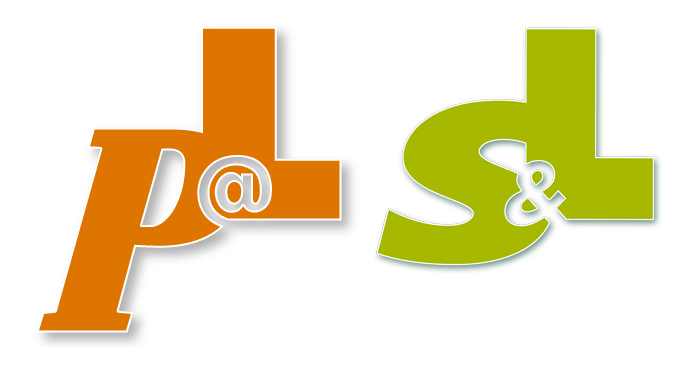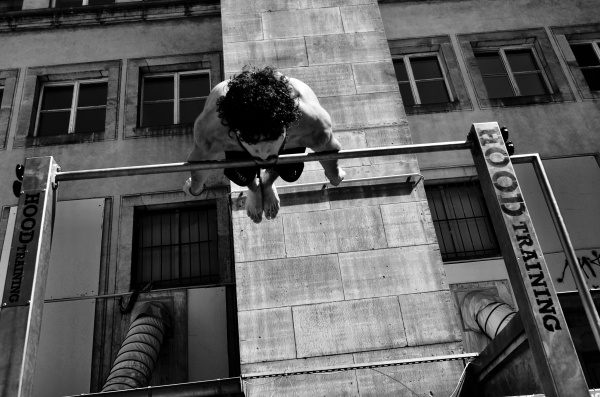Fair city sharing - what can urban planning contribute?
Our cities have grown over centuries. This also reflects the history of urban society, i.e. who was in charge, which professions were accessible to whom. A city is a multi-layered structure:...


YOUR FORUM FOR PLAY, SPORTS UND LEISURE AREAS

Lack of perspectives for children and young people from developing neighbourhoods is unfortunately quite often the rule and endangers the future of many young people who are not satisfied with such a stagnation of personal development. Hood Training provides children and young people with new options and opportunities based on personal motivation, active youth culture as well as teamwork; according to the motto "Never ever stand still".
Daniel Magel (*1982) came to Germany from Kazakhstan with his parents in 1995. The late emigrant family lived in Bremen Osterholz, a district of the Hanseatic City of Bremen with the postcode 28 325. After attending the Schulzentrum an der Koblenzerstraße, a school centre in Koblenzer Street., Daniel Magel passed his Abitur in 2002 and studied Inclusion Education at the University of Bremen. Together with his friends, he founded a private initiative called "Hood Work Tenever". Since 2010, the initiative has become a project under the label "Hood Training". At Hood Training, the kids are not left to themselves, but do sports together outdoors as long as the temperature permits, otherwise in the sports hall, auditorium or other rooms. Today, Hood Training is an independent youth welfare organisation in Bremen and a member of the Diakonisches Werk Bremen.
"Ever since I can remember, we have done sports at home in Kazakhstan. We had a pull-up bar in the garden, my father jogged, did pull-ups and exercised with kettlebells. Sports always played an important role. In those days, there were bars and self-made equipment in every front yard. But there was also gym equipment in many public parks. And people used them to exercise. Cliques met and tried to outdo each other. Sports is rather done outdoors and the good thing is that those who want to exercise don't really need any equipment. Anyone can just start doing it - no matter what they look like or whether they have money or not," says Daniel Magel, founder of Hood Training. "There, in Kazakhstan, in the suburbs, everything was small and overseeable, here in Germany everything was suddenly bigger and more confusing. Then I took up boxing in Bremen. There was a phase when I did sports and boxed, and then again for a while I didn't, when I was rather busy with nonsense, I had trouble with the police and the teachers, and so on. ...
Nevertheless, I have always enjoyed fitness. Then in 2001 we founded Hood Work Tenever with a few friends. That was a chance for us to hang around with each other, without social workers from the youth club. We went into empty buildings that were about to be demolished and used them for our purposes. We acquired the most basic training equipment. Then the day came when the building was demolished, so we started looking for a new place to stay. The aim was to run a small club room in a self-managed way and to train there."
Daniel Magel and his friends managed to acquire some money with which they could organise hip hop jams. They have been very active since the end of the 90s. Magel himself used to do box sports in leisure clubs and associations during his studies. And in one of these leisure clubs, he then took over a training group himself, funded by the state of Bremen. Of course, the funding ran out at some point, but he wanted to continue, and in the summer of 2010, he started the project on his own initiative. The project just needed a name: It was still in the 'hood', so it was called 'Hood Training'.
So, who are the people behind Hood Training? "Over the time, I've been able to build a big network - with different people supporting me: acquiring funds, writing applications, organising different projects, designing training facilities, helping to design logos and labels for clothes, editing videos, producing music, painting graffiti, designing magazines and websites, and also as coaches. Many of them are very committed while they are also studying at the same time," says Magel.
Hood Training is financed by funds from the various Bremen senatorial departments: Social Affairs, Education, the Interior and Culture and funds from the federal government, but also through contracts and services, donations and grants, sponsorships from companies or the private sector.
The Hood Training concept differs from other youth projects by offering a variety of different activities. The completely new approach enables Hood Training to positively influence urban youth culture in a targeted way, but without being instructional in the classical sense. Coaches are accepted as role models and respected persons in equal measure, which is achieved through the authenticity of the coaches who work at eye level with the Hood Training participants.
The aim is to arouse the interest of the young people by giving them the opportunity to participate in various sports and urban youth culture (graffiti, hip-hop, dance) projects. The right pedagogical approach to dealing with conflict is extremely important in Hood Training, so participants are offered a way to release frustration, as well as being taught the right way to deal with conflict situations. Furthermore, integration and communication are in the foreground; this has a positive influence on reducing the propensity for violence and at the same time strengthens the participants' self-confidence. Today, several hundred children and young people come to the training sessions at more than ten spots in Bremen and Lower Saxony.
Hood Training was born out of youth self-organisation and the desire to engage in sports in the community. In the meantime, the free training sessions regularly attract many young people to the Hood Training sports parks. The main focus of the project is the open work at calisthenics facilities with regular training sessions in different city areas. The sporting offer is used by the trainers as a basis for educational support.
There are usually two to three open training sessions per week per location at the respective calisthenics park. The exact content of the training changes regularly, but is based on the basic goals of Hood Training: to improve physical health resources through regular training sessions with changing training goals (fitness, endurance, strength, stretching, flexibility, coordination, relaxation, meditation). These goals are sensibly adapted to the participants and conveyed in terms of content within the framework of the joint training.
Since 2014, many refugees have joined the Hood Training. In addition, there are people who become aware of the training via the website www.hoodtraining.de, Instagram or word-of-mouth advertising. For the dissemination of content, the internet is very important as a kind of digital public space. But also for the organisation: when and where is training? Who comes there? A lot of that happens over the internet: via Facebook, Instagram. In the meantime, there is also the Hood Training App, which is available to everyone free of charge.
The "customers" of Hood Training are mainly the kids who often hang around outside. But everyone else is welcome too. For the young people, it's totally important to get an outlet at Hood Training. For many, this is one of the few moments of refuge. They know: it's a safe place, I can go there at a certain time. There is someone who does something with me, who guides me and where it doesn't matter what else I am. It's all about joining in, pushing and doing the next pull-up. Who can do another one? Who can do one more the next week? Hood Training allows all participants to develop themselves and together with the group.
"We actively teach certain values. Our attitude is that every person, regardless of his or her background or problems, can succeed. This is something we teach rather incidentally. If you notice that you're getting better because you're smoking less, maybe you won't smoke anymore. If you notice that you train and perform better when you eat better, maybe you really eat better. When the kids notice how their bodies develop, how they become more athletic, how their muscles grow, then other things may become less important. You compete against the bars and no longer against who said the stupidest thing or did something worse. When sports becomes your drug, you don't need any other drugs and you don't need quick money to get the drugs," Daniel Magel continues.
Our aim remains to provide young people with a place where they can find support, develop their skills and engage in meaningful activity by practising sports in the community. Hood Training wants to show them that they can engage in a constructive way, develop personally and transfer their skills to other areas of life instead of hanging around on the streets.
"We, too, listen to some of the kids' training music. But we tell the kids that the guy who is talking about kilos of cocaine in the rap is actually a computer science student from Offenbach. For him, music is just a job. He doesn't talk about his life. The boys can listen to the music they want. In the end, all we can do is set an example of something different," says Magel.
Many of the children have no other idols. Some are beaten at home, others have never been shown any future prospects. If you went to the secondary school in Bremen-Tenever, like Daniel Magel did, your chances to get an apprenticeship are actually zero. Students there are stigmatised from the very beginning. The pupils know that too.
If your school has a bad reputation and the district you come from has a bad reputation, who will want you at work? These are the kids who sit on the benches in the park and smoke pot. For many of them, the perspective is - if things go well - to get a job as a one-euro jobber somewhere. But they are also a good example of how one can complete school and studies despite a supposed lack of prospects. That certainly plays a role in the cooperation. What has to come together for this to work and how can the city as an institution and as a built environment contribute to this?
"Of course, it helps that the young people know that I am one of them. I've also had problems with teachers and run-ins with the police. If you grow up in a district like Bremen Tenever and you have parents who give you advice, it makes a big difference. But if all you get is disregard and carelessness, it's much harder. Then you need really good friends who push you, or with some luck street workers or teachers who are able to find access to you and show you ways forward. And from all of that, you have to develop your own motivation. You can't do it without that. And you need people who show the kids exactly this: how they can motivate themselves. People who like to do it. Not because it's their job, but because it's their mission. People who tell or show the kids again and again: I believe in you. Unfortunately, there are very few of them. And we try to get people like that on our team." Daniel Magel is living his role.
From a project of youth self-organisation in the Tenever district, Hood Training has developed into an effective concept for reaching young people in many districts. Every day, Hood Training provides pedagogical support in Tenever, Huchting, Gröpelingen, Grohn, Lüssum and Kattenturm, but also in Delmenhorst and Stuhr. In addition, there are school clubs, workshops in various areas, holiday camps, work in youth welfare facilities and regular public events.
Hood Training Gym
Hood Training's latest project: they are campaigning for the construction of new calisthenics facilities. "If every playground or park not only had poles for gymnastics and climbing for the very young, but also some for teenagers and adults, that would be great. Or a pull-up bar at every bus stop. In this way, the kids would be able to see everywhere that they could just do a bit of sports instead of hanging around or being rude to grannies at the bus stop. “That's the statement from Hood Training. Instead, the money goes to "art in construction" projects that the young people can't do anything with.
Why can't a dip pole be a street light? Or training equipment an art installation? Why is such a thing never taken into account? There are already a few examples - sports equipment along jogging routes, for example - but there are still far too few. Our society is becoming more and more urban. And that's where we need stable people. "We need multipliers to pass on the positive energy so that we can all cope with what is coming our way. If I see how much money is invested in arms instead of in social welfare, the only thing left to do is to take one's own initiative," says Daniel Magel.
All in all, Daniel Magel’s Hood Training project is an "invaluable aid" for Bremen.